Climate News

Human activities emit many kinds of pollutants into the air, and without a molecule called hydroxide (OH), many of these pollutants would keep aggregating in the atmosphere. How OH itself forms in the atmosphere was viewed as a complete story, but in new research published in Proceedings of the National Academy of Sciences report that a strong electric field that exists at the surface between airborne water droplets and the surrounding air can create OH by a previously unknown mechanism.

New research in the field of plant sciences has made significant advances towards understanding the underlying reasons behind why certain crops are better at generating more yield than others.
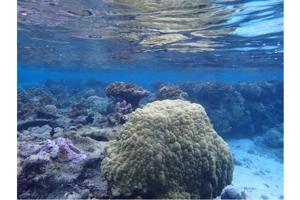
The breathtaking colors of reef-building corals come from photosynthetic algae that live inside the corals. A groundbreaking three-year study has found that viruses may increase their attacks on these symbiotic algae during marine heat waves.
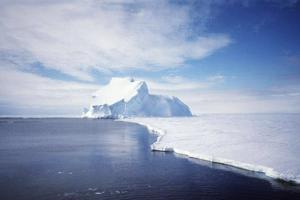
Rapid ice melt in the Antarctic is predicted to slow critically important ocean currents near the South Pole “on a trajectory which looks headed towards collapse”, according to authors of a just-released scientific paper from Australian researchers.

According to a new study, once we emit about 1000 gigatons of carbon, much of the massive ice sheet will melt irreversibly. We’ve emitted 500 gigatons so far.
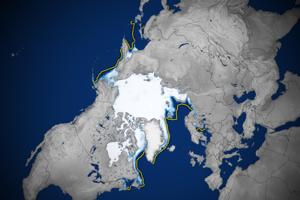
On March 6, 2023, Arctic Sea Ice levels reached what appear to be their maximum extent for the 2022-2023 winter season. That maximum extent is unfortunately well below average and the fifth lowest in history.
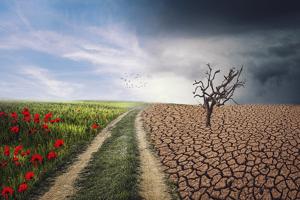
Continued warming of the climate would see a rise in the number and spread of potentially fatal infections caused by bacteria found along parts of the coast of the United States.

On March 18, 2023, the average surface temperature of the ocean reached a new record high of 21° C (69.8° F). That is the warmest the oceans have ever been since official records began in 1981. It could be just the beginning of the most dangerous year yet in the climate crisis.
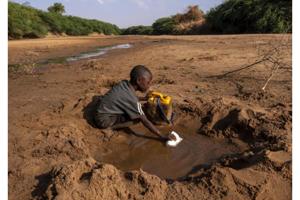
190 million children in 10 African countries are at the highest risk from a convergence of three water-related threats – inadequate water, sanitation, and hygiene (WASH); related diseases; and climate hazards – according to a new UNICEF analysis.
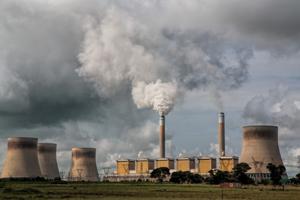
The United Nations Secretary General set strong conditions for joining a global climate ambition summit in September, including ceasing all licensing and funding of new oil and gas development and halting expansion of existing oil and gas reserves. This price of entry puts the United States at risk of being shut out of the meeting.

A new scientific study by researchers from the University of Liège (Belgium) shows that rivers in the Andean mountains contribute 35% and 72% of riverine emissions of carbon dioxide (CO2 ) and methane (CH4 ) in the Amazon basin, the world's largest river. This study is published in the journal Communications Earth & Environment.

A new report shows the damage to the ecosystems which supply freshwater for the planet will lead to demand exceeding supply by 40% just seven years from now.
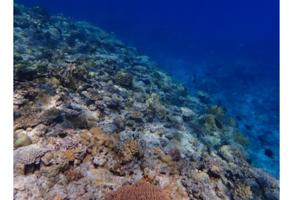
A new study is providing an unprecedented examination of oxygen loss on coral reefs around the globe under ocean warming. Led by researchers at UC San Diego’s Scripps Institution of Oceanography and a large team of national and international colleagues, the study captures the current state of hypoxia—or low oxygen levels—at 32 different sites, and reveals that hypoxia is already pervasive on many reefs.

The coral reefs of the Florida Keys have been nearly destroyed by climate change, water pollution, fishing and boat anchors. Mission: Iconic Reefs hopes to save them.
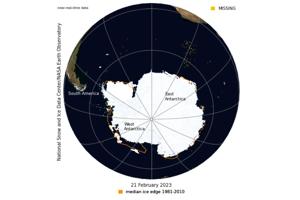
Observations measured last week showed sea ice surrounding Antarctica at its lowest levels in the 44 years since such measurements began.

Rutgers-led research finds biomineral structures formed by marine algae foment viral infection, contributing positively to capture CO2.

While the accumulated rain and snow of the last several weeks in California provided short-term respite from the regional drought, there was one victim which will take a long time to recover for the damage the storms brought with them.

Despite everything we as humans may be doing to catapult the ecosystems of the world toward extinction, a new report on an amazing array of fish species first classified in 2022 shows precisely how fiercely the will to survive and evolve still lives on.
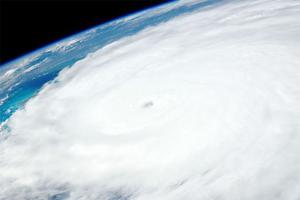
Getting hit with one hurricane is bad enough, but new research from Princeton University’s engineering school shows that back-to-back versions may become common for many areas in coming decades.

In an ominous sign for what is already expected to be another year of extreme dry weather throughout Europe, a record dry winter is already causing Britain and France to announce early drought alerts.
